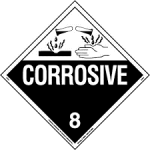When is a Flammable Liquid Not Flammable?
A flammable liquid is not flammable when it does not combust. In other words, its temperature is below its flash point, meaning it does not produce enough vapor to ignite in air under specific test conditions. Additionally, if the concentration of the flammable substance in the air is below its lower flammable limit (LFL), it may not ignite even if the temperature is above the flash point.
Imagine the convenience of not having to ship your product as a Hazardous Material or even as a Limited Quantity.
It’s often overlooked that according to Hazardous Materials Regulations 173.120(3) and the Transportation of Dangerous Goods Regulations 2.18(2)(a), a liquid with a flash point greater than 35°C isn’t considered a Class 3 Flammable Liquid if it doesn’t sustain combustion, as determined by the sustained combustibility test outlined in section 2.3.1.3 of Chapter 2.3 of the UN Recommendations (the L.2 Sustained Combustibility test). Similarly, under the Consumer Chemicals & Containers Regulations (CCCR), a combustible liquid (flash point > 37.8 °C but < 60 º C) may be exempt from the flammable classification if it consists of 50% or more water and 50% or less water-miscible solvents, and if it doesn’t sustain combustion when tested according to the L.2 Sustained Combustibility Test.
Contact Dell Tech today for more information on our Sustained Combustibility and Flashpoint Testing services.





